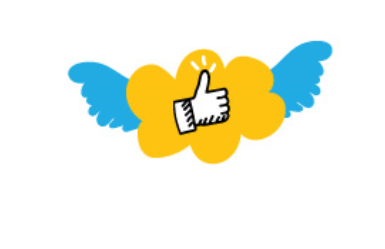The campaign “Turn on knowledge, turn off hate” is designed as a positive response to the negative messages that society often sends about everyone who is different in some way. We are led through the campaign by the pigeon Mirko, who reconciles differences, teaches us to respect them and shows us that there are things in which we are the same, no matter how different we seemed to each other. We can belong to different religions, but we all believe in something, we can be of different sexes or genders, but we all want our own safe spaces, we can be of different sexual orientations, but we all want love. We can be born in different countries, in completely different circumstances, speak different languages, but we all want friends. Mirko is here to teach us tolerance, to convince us that we are all equal, that we deserve equal rights and equal freedoms. Mirko’s strongest weapon is knowledge, because we should fight against the fear of the unknown and the different with facts, not hate.
“Turn on knowledge, turn off hate” campaign with its leader, pigeon Mirko as a symbol of peace, has the basic goal of preventing extremism and radicalization of young people, by sharing facts and information that should break stereotypes and prejudices, most often caused by ignorance or fear. In a society that does not foster values such as tolerance, inclusion and diversity, which emphasizes opposites and creates hate policies, and on the other hand does not educate and inform enough (or at all), extremist attitudes and behaviors may seem to young people to be the only way to cope in society and the environment.

We could define extremism as any deviation from moderation, which refers to both ideas and actions. Extremism can be social, political, religious or cultural. Violence, intimidation and exclusion of all those who deviate from these extremes are often a key instrument in the implementation of extremist ideas and attitudes. Also, extremism survives by constantly making artificial divisions and differences, creating a barrier between “us” i.e. those who share the same views, and “them” i.e. all those who are different in beliefs, attitudes, origin, skin color, sexual orientation, sex/gender or ethnic background. Thus, extremist ideas and behaviors are most often directed at national/ethnic minorities, refugees i.e. migrants, the LGBT population, and members of minority religious communities.

The values of tolerance, solidarity and togetherness are opposed to extremist ideas and attitudes. Young people represent the most vulnerable social group, prone to developing extremist ideas and supporting extremist movements. At the same time, young people are most often victims of extremist attacks, especially if they belong to vulnerable social categories. Violent extremism is often based on false information, stereotypes and manipulations, so it is important to develop critical thinking, get to know the facts and participate in spreading knowledge, not hate.
Partner organizations within the Young Men Initiative worked together with members of the Be a Man Clubs from as many as 5 countries to develop a new campaign that follows the development of a new program for the prevention of radicalism and extremism among young people – Program Y+. This campaign was developed as part of the project Young Men Initiative II, which is supported by the Swiss Government, the Oak Foundation, the Austrian Development Agency and CARE International Balkans.
#YMI #CareInternational #CARE #ProgramY #SvicarskauBiH #AustrianDevelopmentAgency #OakFoundation